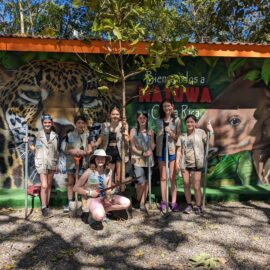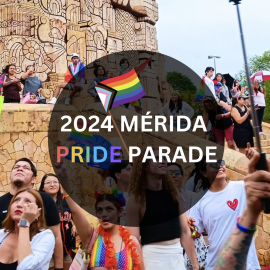Classroom Resources
Core Social and Emotional Learning Strategies for Every Learning Environment
Social and Emotional Learning (SEL) is more than just a buzzword in education today – it should be a crucial part of any school community. According to the Collaborative for Academic, Social, and Emotional Learning (CASEL), “SEL is the process through which children and adults acquire and effectively apply the knowledge, attitudes, and skills necessary to understand and manage emotions, set and achieve positive goals, feel and show empathy for others, establish and maintain positive relationships, and make responsible decisions.” In today’s multicultural world, incorporating SEL into curriculum helps set a foundation for a safe learning environment for all students and provides skills students need to be successful in life.
SEL skills strengthen a student’s self-reliance, their ability to learn from and work with others, their capacity to manage challenging problems and projects, and their potential to communicate clearly. Whether your students are planning to attend college, apply for apprenticeships, head right into the workforce, or pursue artistic passions, all of these skills are essential to be a successful member of society. Many business leaders say they have trouble finding recent graduates who have the communication, decision making, or problem-solving skills needed to succeed in the workplace. You can read the entire Congressional Briefing on SEL and Employability Skills here. These skills are embedded in CASEL’s five key components of SEL, which include self-awareness, self-management, social awareness, relationship skills, and responsible decision making.
The big question is this: How do we support student growth in these areas when our school day, home life, external stressors, and the inability to travel freely all impact our student experience and understanding of traditional learning?
Below are some suggestions of ways to positively impact each competency through virtual learning, trauma awareness, and future travel.
Self-Awareness
- Work with students to identify their strengths and list a few skills they want to improve upon. ‘Strengths and Improvements’ self-assessments place emphasis on a growth mindset rather than weaknesses.
- Make time for acknowledging emotional needs. Encourage journaling, one-on-one conversations, and broader class discussion about the challenges your community, the country, and the world are facing right now.
- Build an inclusive environment where students can learn from other students, share personal experiences, and feel safe to ask questions.
- Introduce students to diverse narratives and knowledge. We must remember, in discomfort comes growth to those students who are receptive to it.
Self-Management
- Support students by improving their goal-writing abilities and making time to self-assess their progress. Follow-up with students about their goals and allow them to know your goals as well.
- Schedule time to discuss organizational strategies, study skills, and learning techniques. Having students share their strategies may give new ideas to students who are struggling.
- Set clear goals for student learning and make sure students are aware of what is expected. Adjust timelines when necessary. Allow flexibility based on personal circumstances. Show empathy more than policy.
- Model emotional awareness and share your personal experiences. When students see emotion, compassion, trust, and vulnerability, they will feel more comfortable sharing their own experiences.
- Provide opportunities for independence. The need for self-management is inherent in independence.
Social Awareness
- Cultivate a space that allows students to feel comfortable asking questions, righting misconceptions, and forming opinions that are free from judgment.
- Teach students how to moderate productive dialogue.
- Address trauma before content.
- Provide opportunities for students to give feedback privately, to the group, and anonymously.
- Address the challenging narratives of US and world history. By witnessing lifestyles that may deviate from the comforts of home, and by hearing the perspectives of individuals with lives much different from themselves, students inherently become more aware, empathetic, and knowledgeable of others.
Relationship Skills
- Allow students to develop a code of conduct and/or rules for engagement.
- Discuss what positive friendship, productive dialogue, and a classroom of learning looks like.
- Provide opportunities for free-thinking brainstorm sessions, where no (respectful) suggestion is a bad suggestion. This is great in allowing students to showcase their specific interests, knowledge, and talents.
- Discuss the elements of teamwork and productive conversation. Give students keywords or phrases to share when the activity has been compromised.
- Train students to learn the nuances of nonverbal communication, subtle cues, and active listening. Being in close quarters with friends and family members demands strong communication skills.
Responsible Decision Making
- Require independent think time before responding to or asking questions, starting projects, and identifying problems.
- Discuss the skills used when improving critical thinking.
- Establish a baseline requirement for primary sources and validated information.
- Connect essential questions and lesson objectives back to the community and issues that resonate with your students.
- Develop a framework for students when faced with challenging situations that may impact themselves and their broader community. Encourage them to consider the benefits and consequences of their autonomous decisions.
While schools can adopt evidence-based SEL programming to make learning these skills part of a school curriculum, there are ways for parents and teachers to integrate SEL through modeling and coaching, project-based learning, and team activities. Whether learning is occurring in a classroom, at home, or in a new destination, SEL instruction is critical for student success.
Related Articles

Around the World in 10 Holiday Cookies
Social and Emotional Learning (SEL) is more than just a buzzword in education today – it should be a crucial part of any school community. According to the Collaborative for Acad...

The 2024 WorldStrides Student Photo & Video Contest Gallery
Social and Emotional Learning (SEL) is more than just a buzzword in education today – it should be a crucial part of any school community. According to the Collaborative for Acad...

Girl Scouts: Costa Rica Tour
Social and Emotional Learning (SEL) is more than just a buzzword in education today – it should be a crucial part of any school community. According to the Collaborative for Acad...

2024 Mérida Pride Parade
Social and Emotional Learning (SEL) is more than just a buzzword in education today – it should be a crucial part of any school community. According to the Collaborative for Acad...

